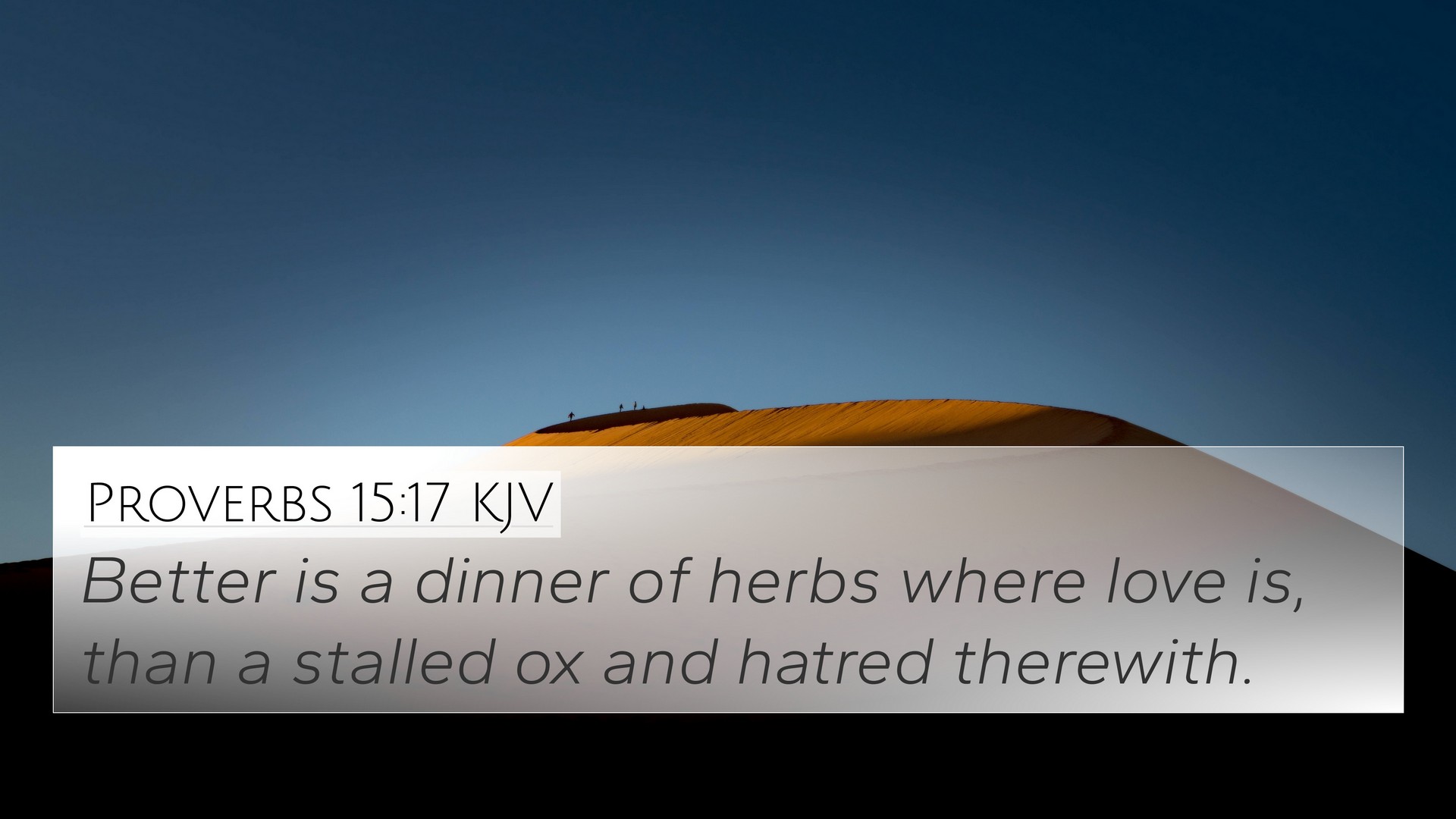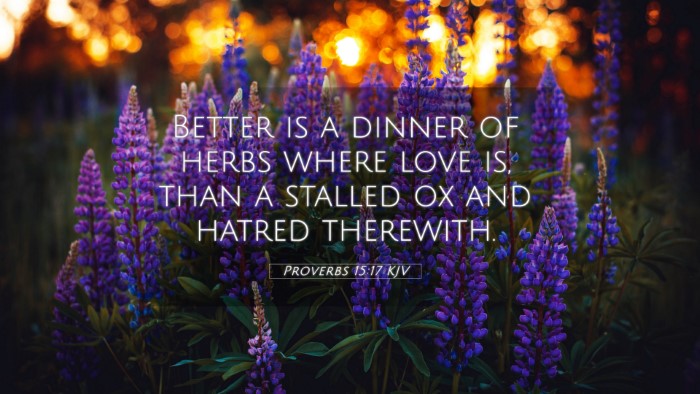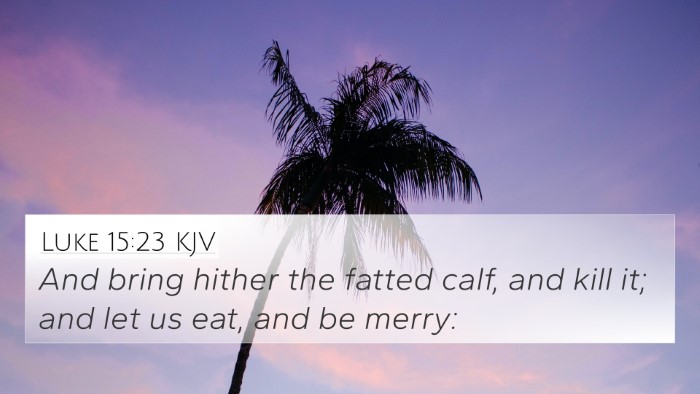Understanding Proverbs 15:17
Proverbs 15:17 states: "Better is a dinner of herbs where love is, than a stalled ox and hatred therewith." This verse highlights the value of love and peaceful relationships over material wealth and abundance.
Meaning and Interpretation
The fundamental message of this verse, as interpreted by various public domain commentaries, focuses on:
- Valuing Relationships: The emphasis is on the nurturing of love and harmony over luxurious living or worldly possessions.
- Spiritual Nourishment: A meal enjoyed with love brings deeper satisfaction than an extravagant feast fraught with discord.
- Moral Lessons: This teaches the moral that emotional and spiritual well-being outweighs physical abundance.
Summary of Insights from Commentaries
Various scholars, including Matthew Henry, Albert Barnes, and Adam Clarke, provide rich analyses of this verse:
-
Matthew Henry's Commentary
Henry contrasts the simplicity of a meal shared in love with the opulence of a grand feast filled with strife, suggesting that peace in relationships is the true wealth.
-
Albert Barnes' Notes
Barnes emphasizes the importance of love and companionship, arguing that the emotional environment of a meal matters more than the actual dishes served.
-
Adam Clarke's Commentary
Clarke reflects on the nature of love as essential to true happiness, stating that it transforms simple provisions into a feast of joy.
Cross-References to Proverbs 15:17
When analyzing Proverbs 15:17, several related Bible verses enrich our understanding:
- 1 John 4:20: “If someone says, ‘I love God,’ and hates his brother, he is a liar...” This verse highlights the fundamental connection between love for God and love for others.
- Romans 14:17: "For the kingdom of God is not meat and drink; but righteousness, and peace, and joy in the Holy Ghost." This shows the comparison of spiritual treasures over material ones.
- Philippians 4:11-12: Paul expresses contentment in all situations, valuing spiritual disposition over physical abundance.
- Isaiah 58:5: "Is it such a fast that I have chosen? a day for a man to afflict his soul?" This indicates the significance of genuine relational engagement over ritualistic practices.
- Ecclesiastes 4:9-10: "Two are better than one; because they have a good reward for their labour." This verse emphasizes the value of companionship.
- 1 Timothy 6:7-8: “For we brought nothing into this world, and it is certain we can carry nothing out. And having food and raiment let us be therewith content.” This reinforces the message of simplicity aligned with spiritual values.
- Acts 2:46-47: “And they, continuing daily with one accord in the temple, and breaking bread from house to house...” This shows early church members valuing community and love over material goods.
- Luke 12:15: "Take heed, and beware of covetousness..." A warning against valuing materialism too highly.
- Matthew 6:21: "For where your treasure is, there will your heart be also." This encourages an evaluation of where one places their ultimate values.
- 1 Corinthians 13:3: "And though I bestow all my goods to feed the poor, and though I give my body to be burned, and have not charity, it profiteth me nothing." This reinforces love as central to any good deed.
Thematic Connections
This verse allows for extensive cross-referencing, linking to broader Scriptural themes:
- Love vs. Materialism: Numerous scriptures convey the theme of prioritizing love over material gain.
- Contentment and Peace: The peace found in loving relationships contrasts starkly with the stress of wealth.
- Communal living and shared experiences: Highlighting how community enriches our lives compared to solitary pursuits of wealth.
Utilizing Bible Cross-References
To deepen your understanding through cross-referencing, consider:
- Using a Bible Concordance: This tool helps identify connections between verses.
- Engaging in Cross-Reference Bible Study: Find various ways scriptures relate to one another.
- Exploring Thematic Connections: Identifying overarching themes links different parts of the scripture.
Conclusion
In conclusion, Proverbs 15:17 serves as a powerful reminder that love and companionship are ultimately more fulfilling than any material possessions. Through comparative analysis and thematic connections with other scriptures, this verse invites readers into a deeper reflection on their values and the quality of their relationships.
Using tools like a Bible concordance or cross-reference guide can enhance your study and understanding of these vital themes within scripture.









